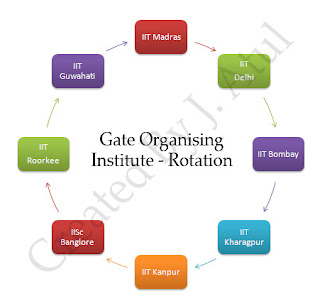ENGINEERING MATHEMATICS
Mathematical Logic: Propositional Logic; First Order Logic.
Probability: Conditional Probability; Mean, Median, Mode and Standard Deviation; Random Variables; Distributions; uniform, normal,
exponential, Poisson, Binomial.
Set Theory & Algebra: Sets; Relations; Functions; Groups; Partial Orders; Lattice; Boolean Algebra.
Combinatorics: Permutations; Combinations; Counting; Summation; generating functions;
recurrence relations; asymptotics.
Graph Theory: Connectivity; spanning trees; Cut vertices & edges; covering; matching; independent sets; Colouring; Planarity;
Isomorphism.
Linear Algebra: Algebra of matrices, determinants, systems of linear equations, Eigen values and Eigen vectors.
Numerical Methods: LU decomposition for systems of linear equations; numerical solutions of non-linear algebraic equations by Secant,
Bisection and Newton-Raphson Methods; Numerical integration by trapezoidal and Simpson’s rules.
Calculus: Limit, Continuity & differentiability, Mean value Theorems, Theorems of integral calculus, evaluation of definite & improper
integrals, Partial derivatives, Total derivatives, maxima & minima.
COMPUTER SCIENCE AND INFORMATION TECHNOLOGY
Digital Logic: Logic functions, Minimization, Design and synthesis of combinational and sequential circuits; Number representation and
computer arithmetic (fixed and floating point).
Computer Organization and Architecture: Machine instructions and addressing modes, ALU and data-path, CPU control design,
Memory interface, I/O interface (Interrupt and DMA mode), Instruction pipelining, Cache and main memory, Secondary storage.
Programming and Data Structures: Programming in C; Functions, Recursion, Parameter passing, Scope, Binding; Abstract data types,
Arrays, Stacks, Queues, Linked Lists, Trees, Binary search trees, Binary heaps.
Algorithms: Analysis, Asymptotic notation, Notions of space and time complexity, Worst and average case analysis; Design: Greedy
approach, Dynamic programming, Divide-and-conquer; Tree and graph traversals, Connected components, Spanning trees, Shortest
paths; Hashing, Sorting, Searching. Asymptotic analysis (best, worst, average cases) of time and space, upper and lower bounds, Basic
concepts of complexity classes – P, NP, NP-hard, NP-complete.
Theory of Computation: Regular languages and finite automata, Context free languages and Push-down automata, Recursively
enumerable sets and Turing machines, Undecidability.
Compiler Design: Lexical analysis, Parsing, Syntax directed translation, Runtime environments, Intermediate and target code generation,
Basics of code optimization.
Operating System: Processes, Threads, Inter-process communication, Concurrency, Synchronization, Deadlock, CPU scheduling,
Memory management and virtual memory, File systems, I/O systems, Protection and security.
Databases: ER-model, Relational model (relational algebra, tuple calculus), Database design (integrity constraints, normal forms), Query
languages (SQL), File structures (sequential files, indexing, B and B+ trees), Transactions and concurrency control.
Information Systems and Software Engineering: information gathering, requirement and feasibility analysis, data flow diagrams,
process specifications, input/output design, process life cycle, planning and managing the project, design, coding, testing, implementation,
maintenance.
Computer Networks: ISO/OSI stack, LAN technologies (Ethernet, Token ring), Flow and error control techniques, Routing algorithms,
Congestion control, TCP/UDP and sockets, IP(v4), Application layer protocols (icmp, dns, smtp, pop, ftp, http); Basic concepts of hubs,
switches, gateways, and routers. Network security – basic concepts of public key and private key cryptography, digital signature,
firewalls.
Web technologies: HTML, XML, basic concepts of client-server computing.

